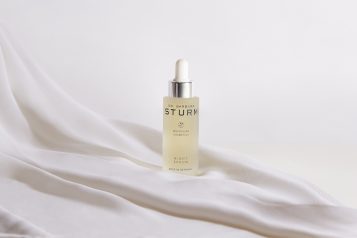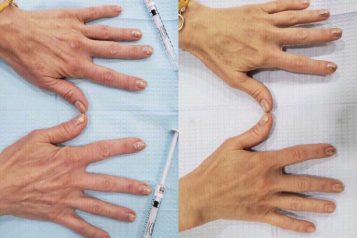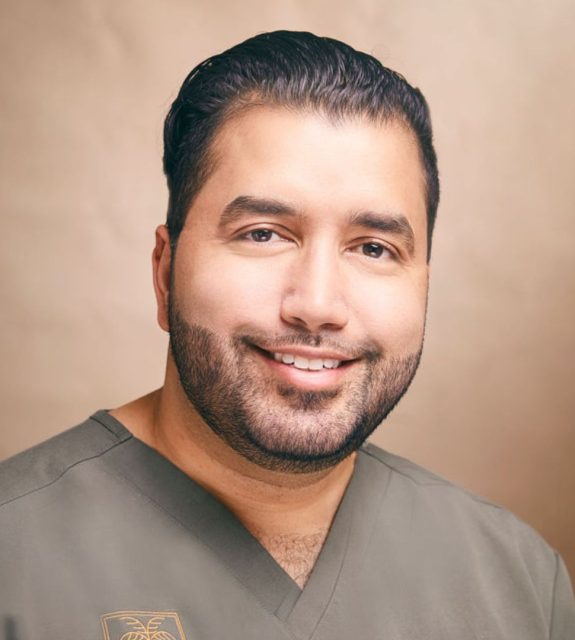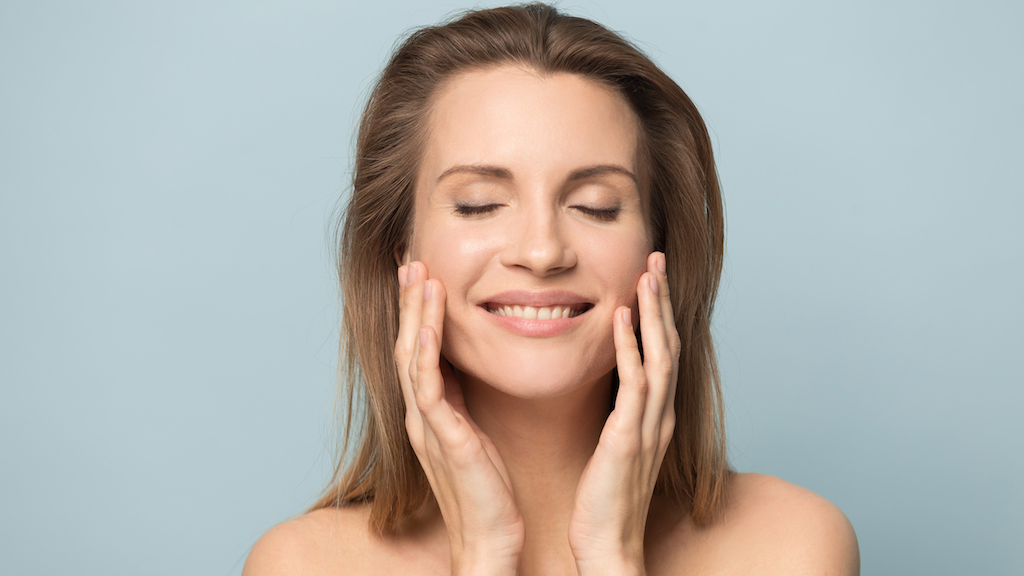 Photo Credit: Shutterstock
Photo Credit: Shutterstock
For much of his career, Dr. Georges Kaado has spent years training in the fields of aesthetics and dermatology with the pioneers in the field of plastic surgery, dermatology and anti-aging medicine. Moreover, having trained in primary and urgent care, while working in the most progressive locales in the world of aesthetic expertise: the vitality and wonder of such places as Miami, London, Paris and Venezuela, have expanded his knowledge, sharpened his skills, and perfected his keen eye for exquisite detail. Haute Beauty chats with Dr. Kaado about his C02 laser facial, to learn more about the game-changing treatment.
HB: What is CO2 laser facial rejuvenation?
The carbon dioxide (or CO2) laser is employed for a customized facial rejuvenation treatment, or “laser abrasion.” While there are lasers that are gentler, one important detail to remember is the deeper the treatment, the more dramatic the improvements. CO2 Laser is used to treat fine lines and wrinkles, sun damage, age spots, pigmentation problems, scars, surgical scars, acne scars, and stretch marks. When the skin is treated with this laser, it stimulates collagen remodeling and production, to tighten and make the skin looks younger, tighter and healthier.
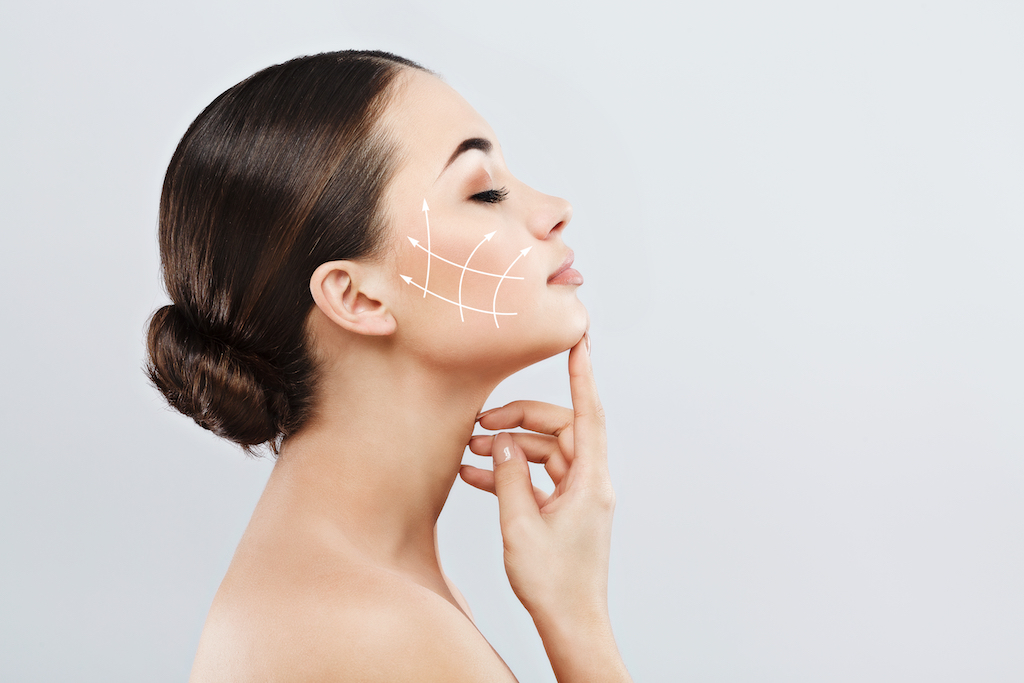 Photo Credit: Shutterstock
Photo Credit: Shutterstock
HB: How does it work?
The CO2 laser works by treating the surface of your skin with high-powered light energy, creating minuscule injuries in the deeper layers of skin. These tiny injuries signal the body to produce natural collagen while removing the damaged surface layer. Since the CO2 laser works by heating the outer layers of the skin, local anesthesia will be administered so you remain comfortable during the procedure. We use Fractionated ablative resurfacing which is a newer method of ablative resurfacing where skin is removed using the SmartSkin CO2 (carbon dioxide) laser which delivers energy to the skin in tiny, microscopic units or “dots.” By treating the skin in a pixilated fashion, enough of the body’s own tissue is spared to allow faster healing and fewer side effects. The fractionation allows the laser to penetrate much deeper into the skin (epidermis, superficial/papillary and deep/reticular dermis). It can also be used to blend the skin condition on the face and neck and avoid any obvious transitions zones between treated and untreated skin. The end result is a tighter, beautiful, radiant skin with fewer lines and wrinkles. My Device of choice is Smartskin CO2 laser by cynosure.
There are two types of CO2 lasers:
- The Fully ablative laser which removes all the epidermis and heats up the deeper layer of the skin. The downtime is longer which can be weeks to months, and the risks of complications are higher. It is also an older technology.
- The Fractional CO2 laser which I prefer. It creates heat columns in the skin, leaving areas of the skin intact, which helps speed up the healing process. The downtime is less which is days to weeks.
HB: Who is the best candidate for CO2 facial rejuvenation?
The depth achieved with CO2 laser therapy allows me to address skincare concerns that cannot be treated through other methods. Men and women seeking laser skin resurfacing can see visible results for skin concerns on the face, neck, chest, and hands such as:
• Deep wrinkles and creases in the face
• Uneven skin tone
• Scarring
• Sun damage
• Precancerous growths
The ideal candidate for a CO2 laser is someone with a light to medium skin tone. It is not recommended to treat olive skin tones, and brown skin tones because it can cause hyperpigmentation.
HB: How does this treatment compare to others of the same nature?
During CO2 laser therapy, carbon dioxide ultra-pulse beams are directed at layers of skin. These laser beams remove the outermost layers of the dermis, eliminating signs of aging, stimulating collagen production, and increasing the rate of cell turnover. The new skin revealed by the CO2 laser is brighter, tighter, and now free from the signs of environmental damage and aging that naturally occur in our skin. Once skin is healed, you will be left with the smooth, glowing, radiant skin.
- Fractional lasers are non-ablative, the downtime is minimal but the results are less drastic and it will require multiple treatments.
- Peels : Doctors grade like the TCA peels, ZO peels by Obagi, and Revepeel. These peels will remove the outer layer of the skin, the depth of penetration is not well controlled like the CO2
laser. There are Risks of hyperpigmentation and hypopigmentation especially with the TCA peels.
- Dermabrasion is unpredictable, it can cause scarring. Results are not as drastic as the CO2 laser and collagen relayering is not done in a smooth, reliable and predictable fashion.
- Morpheus / Fractora by InMode devises, combines Radiofrequency energy with micro-needling. They use tiny pins to deliver the energy deep into the tissue, to promote collagen production and tighten skin. Morpheus can reach deeper dermal layers than Fractora and the CO2 laser. Morpheus is better than CO2 in treating acne scarring, and tightening lax skin. Morpheus is safe to be used on patients of all skin types, it has little to no risks of hyperpigmentation.
HB: What does recovery look like?
Following the CO2 laser resurfacing, you should plan to take some time to allow your skin to heal. Because of the invasive nature of the CO2 laser, healing following resurfacing may take up to two weeks. The skin will look red, raw, and swollen post-treatment. Coldwater and vinegar soaks are recommended after the treatment to help cool off the skin and help with the itching. The area should be cleaned at least twice a day and an ointment is recommended to be applied to the healing skin to prevent it from drying and creating scabs. Once the skin is healed the redness can last longer. Retinol and glycolic acids can be started after 6 weeks. Sunscreens are also very important to protect the new skin SPF 50 or higher are recommended,
As the days pass, your skin starts to regenerate, revealing fresh, glowing skin. Full results are achieved about six months after CO2 laser skin resurfacing. Your skin will appear youthful, evenly-toned, and supple. It is recommended to do the CO2 laser every 1 to 2 years.
For more information, visit Dr. Georges Kaado's social media:






